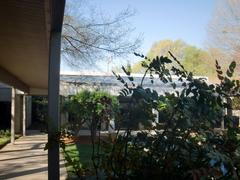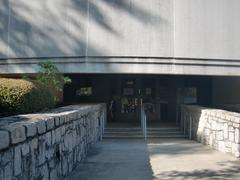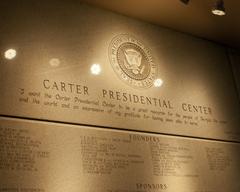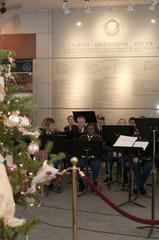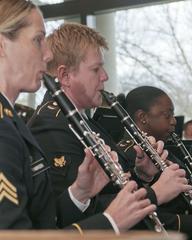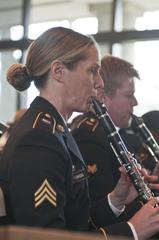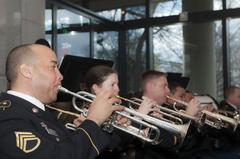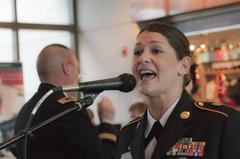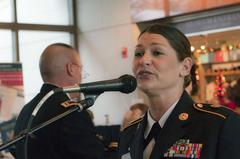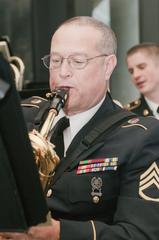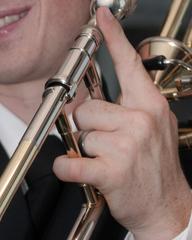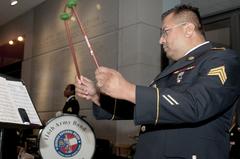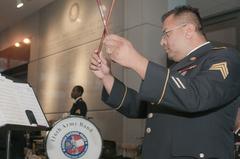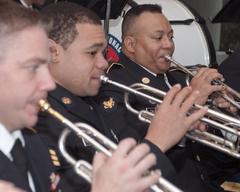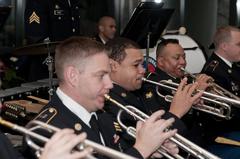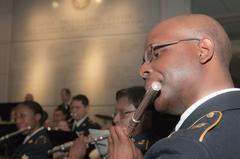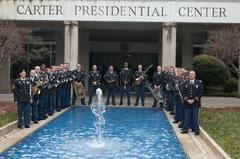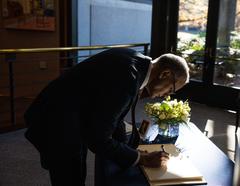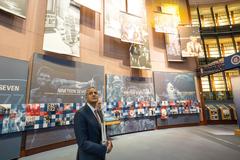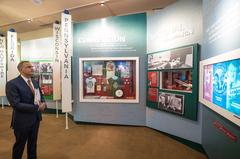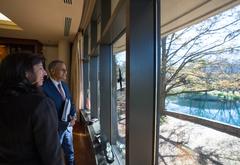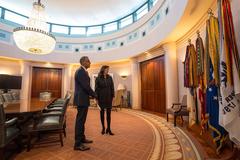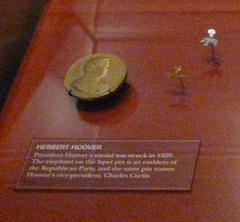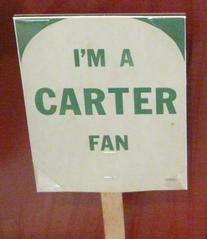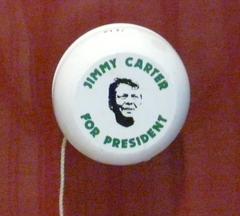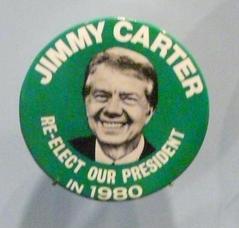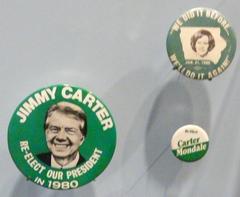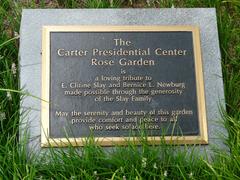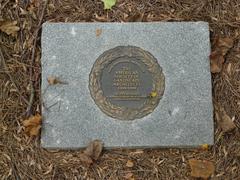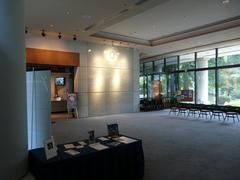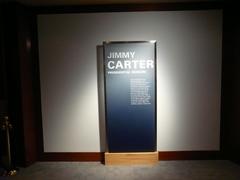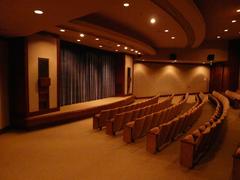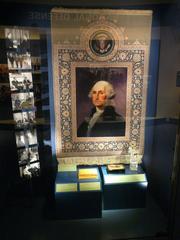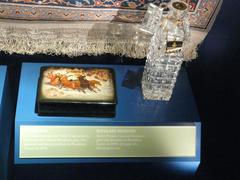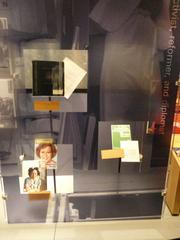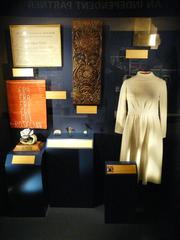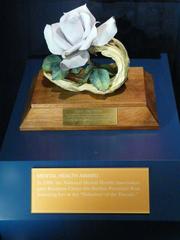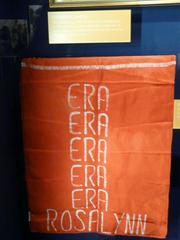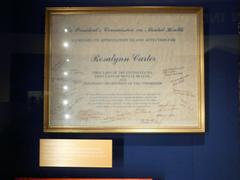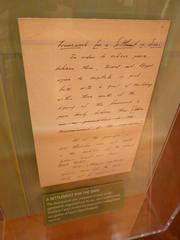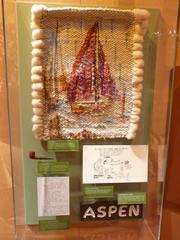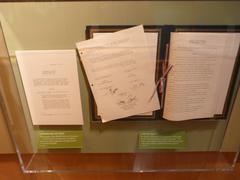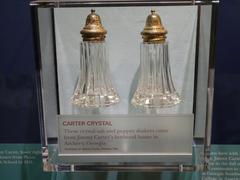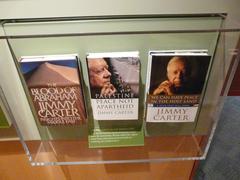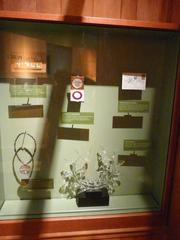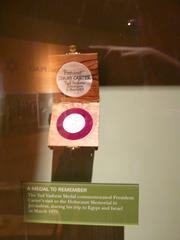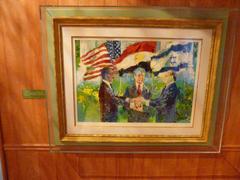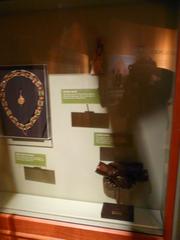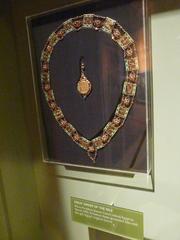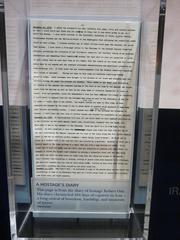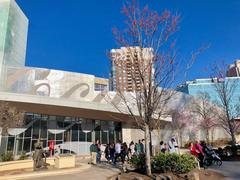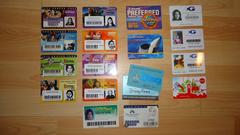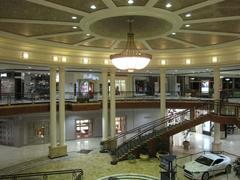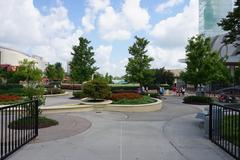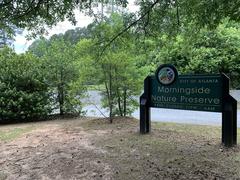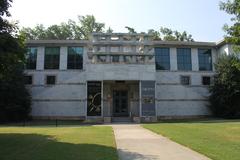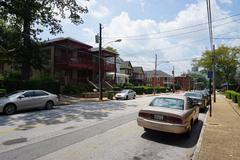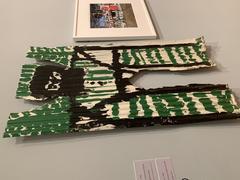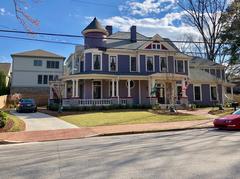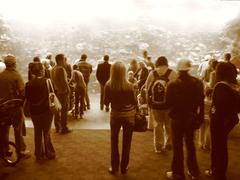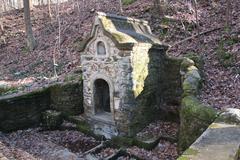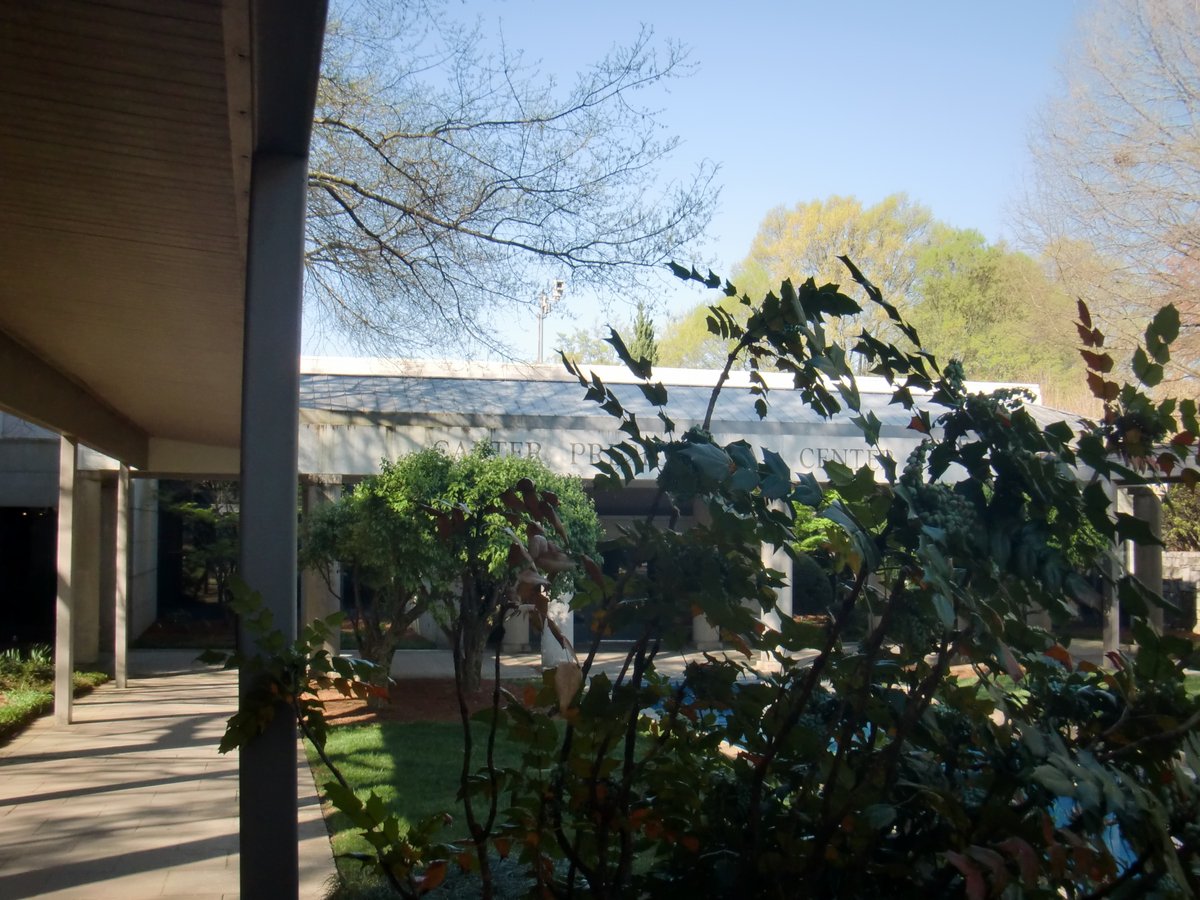
Visiting the Carter Presidential Library: Tickets, Hours, and Tips
Publication Date: 19/07/2024
Introduction to the Carter Presidential Library
Nestled in the heart of Atlanta, Georgia, the Carter Presidential Library and Museum stands as a beacon of history, learning, and inspiration. This institution not only honors the life and legacy of the 39th U.S. President, Jimmy Carter, and his wife, Rosalynn Carter, but also serves as a dynamic center dedicated to global peace, human rights, and public health. Whether you’re a history enthusiast or simply exploring Atlanta’s historical sites, the Carter Presidential Library offers a wealth of knowledge and a profound visitor experience (Carter Presidential Library Official Website). Established in 1986, the library deviates from the tradition of situating presidential libraries in the president’s hometown and is instead located in Atlanta for its vibrant cultural scene and international significance (Carter Presidential Library History). Designed by architect Jo Harris, the library’s design reflects a harmonious blend of modern aesthetics and Southern charm, seamlessly integrating with its natural surroundings (Architectural Significance). The adjacent Carter Center, founded by the Carters in 1982, amplifies the library’s impact by tackling pressing global issues, including disease eradication, election monitoring, and conflict resolution (The Carter Center).
Table of Contents
- [Introduction](#introductionintroduction-to-the-carter-presidential-library)
- [History and Significance](#history-and-significancehistory-and-significance)
- [A Presidential Vision](#a-presidential-visiona-presidential-vision)
- [Architectural Significance](#architectural-significancearchitectural-significance)
- [A Legacy of Peace and Public Service](#a-legacy-of-peace-and-public-servicea-legacy-of-peace-and-public-service)
- [Practical Visitor Information](#practical-visitor-informationpractical-visitor-information)
- [Visiting Hours and Ticket Prices](#visiting-hours-and-ticket-pricesvisiting-hours-and-ticket-prices)
- [Guided Tours and Special Events](#guided-tours-and-special-eventsguided-tours-and-special-events)
- [Travel Tips and Nearby Attractions](#travel-tips-and-nearby-attractionstravel-tips-and-nearby-attractions)
- [Accessibility](#accessibilityaccessibility)
- [Must-See Exhibits and Cultural Insights](#must-see-exhibits-and-cultural-insightsmust-see-exhibits-and-cultural-insights)
- [Replica Oval Office](#replica-oval-officereplica-oval-office)
- [The Carter Center and Global Issues](#the-carter-center-and-global-issuesthe-carter-center-and-global-issues)
- [Life in Plains: Childhood and Early Career](#life-in-plains-childhood-and-early-careerlife-in-plains-childhood-and-early-career)
- [The 1976 Presidential Campaign and Election](#the-1976-presidential-campaign-and-electionthe-1976-presidential-campaign-and-election)
- [Key Initiatives and Domestic Policy](#key-initiatives-and-domestic-policykey-initiatives-and-domestic-policy)
- [Camp David Accords and Middle East Peace Efforts](#camp-david-accords-and-middle-east-peace-effortscamp-david-accords-and-middle-east-peace-efforts)
- [Post-Presidency and Nobel Peace Prize](#post-presidency-and-nobel-peace-prizepost-presidency-and-nobel-peace-prize)
- [The Berlin Wall Segment](#the-berlin-wall-segmentthe-berlin-wall-segment)
- [FAQ](#faqfaq)
- [Conclusion](#conclusionconclusion)
- [Call to Action](#call-to-actioncall-to-action)
- [References and Further Reading](#references-and-further-readingreferences-and-further-reading)
History and Significance
A Presidential Vision
The idea for the library emerged from President Carter’s deep-rooted belief in transparency and accessibility in government. He envisioned a place where the public could engage with the history of his presidency and find inspiration in the values that guided his life. The Carter Library was established in 1986 as part of the National Archives and Records Administration’s Presidential Library system. President Carter, deviating from the tradition of locating the library in his hometown of Plains, Georgia, chose Atlanta for its vibrant cultural scene and status as a hub for international affairs.
Architectural Significance
Designed by architect Jo Harris, the library’s design reflects a harmonious blend of modern aesthetics and Southern charm. The complex, spanning 35 acres, seamlessly integrates with its natural surroundings. The use of Georgia white marble and expansive glass windows creates a sense of openness and invites visitors to connect with the surrounding parkland.
A Legacy of Peace and Public Service
The Carter Center, an adjacent institution founded by the Carters in 1982, further amplifies the library’s impact. The center tackles pressing global issues, including disease eradication, election monitoring, and conflict resolution. The Carter Library and Museum serve as a vital resource for the center’s initiatives, housing an extensive collection of documents and artifacts related to its work.
Practical Visitor Information
Visiting Hours and Ticket Prices
The Carter Presidential Library and Museum is open Monday through Saturday from 9:00 AM to 4:45 PM, and on Sunday from 12:00 PM to 4:45 PM. Tickets can be purchased at the entrance or online through the official website. General admission is $12, with discounts available for seniors, students, and children.
Guided Tours and Special Events
Visitors can take advantage of guided tours that offer in-depth insights into the exhibits and the Carters’ legacy. The library also hosts a variety of special events, including book signings, lectures, and educational programs. Check the official website for the latest schedule and details.
Travel Tips and Nearby Attractions
Located in Atlanta, the library is easily accessible by car and public transportation. Parking is available on-site. While in the area, visitors can explore other historical sites such as the Martin Luther King Jr. National Historical Park and the Atlanta History Center.
Accessibility
The Carter Presidential Library is committed to providing a welcoming experience for all visitors. The facility is wheelchair accessible, and assistance is available for those with special needs. Service animals are permitted.
Must-See Exhibits and Cultural Insights
Replica Oval Office
Step back in time and experience the presidency firsthand in the meticulously recreated Oval Office. This exhibit showcases the workspace where President Carter tackled critical issues, featuring original furnishings and decor from his time in office.
The Carter Center and Global Issues
Delve into President Carter’s post-presidential work at The Carter Center, an organization dedicated to advancing peace and health worldwide. Explore interactive exhibits highlighting the Center’s efforts in areas such as:
- Election Monitoring: Learn about the Carter Center’s role in observing elections and promoting democratic values in emerging democracies.
- Disease Eradication: Discover the Center’s groundbreaking work in combating diseases like Guinea worm disease, River Blindness, and Lymphatic Filariasis.
- Conflict Resolution: Explore the Carter Center’s initiatives in mediating conflicts and promoting peace in regions around the world.
Life in Plains: Childhood and Early Career
Journey through President Carter’s formative years in Plains, Georgia. This exhibit offers a glimpse into his childhood, family life, and early career, showcasing artifacts and photographs that illustrate his upbringing in rural South.
- Early Influences: Learn about the people and experiences that shaped President Carter’s values and worldview.
- Naval Career: Explore his time in the U.S. Navy, including his service on submarines.
- Return to Plains: Discover his decision to return to his hometown and enter politics.
The 1976 Presidential Campaign and Election
Relive the excitement of the 1976 presidential election, where Jimmy Carter, a relatively unknown governor, won the presidency. This exhibit features campaign memorabilia, television footage, and interactive displays that capture the spirit of the times.
- Campaign Strategies: Analyze the strategies and messages that resonated with voters during the campaign.
- The Outsider Candidate: Understand how Carter’s image as a Washington outsider contributed to his victory.
- Post-Watergate Era: Explore the political climate following the Watergate scandal and how it influenced the election.
Key Initiatives and Domestic Policy
Explore the challenges and triumphs of the Carter presidency through exhibits focusing on key domestic policy initiatives.
- Energy Crisis: Learn about President Carter’s efforts to address the energy crisis of the 1970s, including his emphasis on conservation and alternative energy sources.
- Panama Canal Treaty: Discover the historical significance of the Panama Canal Treaty and the negotiations that led to its ratification.
- Human Rights Diplomacy: Explore President Carter’s commitment to human rights as a cornerstone of his foreign policy.
Camp David Accords and Middle East Peace Efforts
Delve into one of the most significant achievements of the Carter administration—the Camp David Accords. This exhibit provides insights into the historic peace agreement between Israel and Egypt, featuring photographs, documents, and interactive displays.
- The Summit: Learn about the 13-day summit at Camp David and the intense negotiations that took place.
- Key Players: Discover the roles of President Carter, Egyptian President Anwar Sadat, and Israeli Prime Minister Menachem Begin in achieving the agreement.
- Lasting Impact: Explore the ongoing significance of the Camp David Accords in the context of Middle East peace efforts.
Post-Presidency and Nobel Peace Prize
Explore President Carter’s remarkable post-presidency, marked by his dedication to humanitarian work, conflict resolution, and promoting democracy.
- The Carter Center: Learn about the establishment and mission of The Carter Center, a non-profit organization dedicated to advancing peace and health worldwide.
- Humanitarian Efforts: Discover President Carter’s hands-on involvement in Habitat for Humanity and other humanitarian initiatives.
- Nobel Peace Prize: Explore the significance of President Carter’s Nobel Peace Prize, awarded in 2002 for his decades of work in conflict resolution and promoting human rights.
The Berlin Wall Segment
The Carter Presidential Library is home to a piece of the Berlin Wall, a powerful symbol of the Cold War and its eventual end. This segment of the wall serves as a reminder of the importance of diplomacy and the pursuit of peace.
FAQ
Q: What are the Carter Presidential Library visiting hours?
A: The library is open Monday through Saturday from 9:00 AM to 4:45 PM, and on Sunday from 12:00 PM to 4:45 PM.
Q: How much do tickets cost?
A: General admission is $12, with discounts for seniors, students, and children.
Q: Are guided tours available?
A: Yes, guided tours are available and offer detailed insights into the exhibits.
Q: Is the Jimmy Carter Presidential Library accessible for visitors with disabilities?
A: Yes, the library and museum are fully accessible to visitors with disabilities. Wheelchairs are available for free on a first-come, first-served basis.
Conclusion
The Carter Presidential Library and Museum stands as a powerful reminder of the enduring impact of one man’s commitment to peace, equality, and human dignity. It serves as a beacon of hope, inspiring visitors to engage in meaningful dialogue and action on critical global issues. The library’s commitment to education and public engagement ensures that President Carter’s legacy continues to inspire generations to come. Plan your visit today and immerse yourself in the rich history and ongoing mission of this remarkable institution.
Call to Action
Don’t miss out on upcoming events and updates from the Carter Presidential Library. Follow them on social media, check out other related posts, and download the mobile app Audiala for a richer visiting experience (Audiala Mobile App).
References and Further Reading
- Carter Presidential Library Official Website. (n.d.). Retrieved from https://www.jimmycarterlibrary.gov/
- Carter Presidential Library History. (n.d.). Retrieved from https://www.jimmycarterlibrary.gov/about_us
- Architectural Significance. (n.d.). Retrieved from https://www.jimmycarterlibrary.gov/about_us
- The Carter Center. (n.d.). Retrieved from https://www.cartercenter.org/
- Must-See Exhibits. (n.d.). Retrieved from https://www.jimmycarterlibrary.gov/exhibits
- Visitor Information. (n.d.). Retrieved from https://www.jimmycarterlibrary.gov/visiting
- Audiala Mobile App. (n.d.). Retrieved from https://www.audiala.com/
